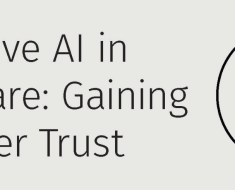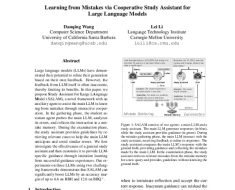Musk v. Altman
EPOCHAL LAWSUIT OVER
ARTIFICIAL GENERAL INTELLIGENCE
LANDS IN SAN FRANCISCO
By Joe Dworetzky ❡ Bay City News
The most important lawsuit in the history of the world was filed Thursday in the Superior Court of San Francisco County. ❡ At least that is how this report would begin were it written in the style of the lawsuit Elon Musk has brought against Sam Altman and OpenAI, Inc. the creators of ChatGPT. ❡ Visionary inventor and thinker (Musk) discovered that a dark lord (Larry Page of Google) had hatched a plot to acquire DeepMind, a research group full of world class scientists attempting to build “artificial general intelligence” or AGI.

AGI is to artificial intelligence what a computer is to an abacus. If AI allows a computer to do specific reasoning-based tasks better than humans, AGI will allow a computer to do all or most reasoning-based tasks better than humans. AGI in the wrong hands, Musk believes, will be the end of the humankind.
In 2012, only a handful of visionaries understood this fact and, of those, only one (Musk) took determined action to save the species from the Google dark lord. (The complaint reports that Page “claimed Mr. Musk was being a ‘specist,’” when he worried over the fate of our species. Page drew from Musk a sharp retort, “Well yes, I am pro-human.”)
Despite their “passionate” exchange, Musk was unable to divert Page from the acquisition, leaving Musk on the sidelines as Google and the DeepMind project began to produce extraordinary work.
The complaint quotes Google/Deep Mind talking about a project called “AlphaZero” that focused on chess: “Starting from random play, and given no domain knowledge except the game rules, AlphaZero achieved within 24 hours a superhuman level of play in the games of chess and shogi (Japanese chess) as well as Go, and convincingly defeated a world-champion program in each case.”
Musk was “deeply troubled” because Google was not only in possession of riches in the form of treasure, but it had also accumulated an unparalleled trove of data from “our searches, emails, and nearly every book in our libraries.” In the hands of a “closed, for profit company like Google, AGI poses a particularly acute and noxious danger to humanity.”
Musk could not abide this possibility. He began “hosting his own series of dinner discussions on ways to counter Google and promote AI safety.” He reached out to then President Barrack Obama, but regulation of AGI did not result.
Then a godsend. A like-minded visionary appeared in the form of Sam Altman, a Bay Area innovator, then president of Y Combinator, a startup accelerator. Altman endeared himself to Musk with the declaration that superhuman machine intelligence was “probably the greatest threat to the continued existence of humanity” and emphasized that “as a human programmed to survive and reproduce, I feel we should fight it.”
And so the two visionaries, together with Gregory Brockman, a former CTO of Stripe, decided to form a league of justice to protect humanity. Their first public act — an open letter to the U.S. government urging AGI regulation — was signed by 11,000 individuals including physicist Stephen Hawking and Apple co-founder Steve Wozniak.

But the open letter was not enough and so the justice league decided they must found a new enterprise to carry forward the fight. The company would be a nonprofit and would be chartered to report not to individual shareholders but to humanity at large. The mission: “to create the first general AI and use it for individual empowerment.”
The name of the new company, “OpenAI,” was chosen to demonstrate the league’s commitment to making the technology available to all the world, preventing the dark lord from bottling it up and using its powers to subject humankind, or at least to make inconceivably vast sums of money.
❡
‘I like the odds’

Musk knew that the mission was perilous and extraordinarily difficult. The complaint reports that he said “[w]e are outmanned and outgunned by a ridiculous margin…” Fortunately, he quipped, “we have right on our side and that counts for a lot. I like the odds.”
The justice league incorporated OpenAI, Inc. in the state of Delaware and enshrined in its charter its nonprofit mission. In a release it said, “Our goal is to advance digital intelligence in the way that is most likely to benefit humanity as a whole, unconstrained by a need to generate financial return. Since our research is free from financial obligations, we can better focus on a positive human impact.”
A board of directors was enlisted, ultimately responsible to humanity, not base profiteers.
Musk then devoted himself to enlisting the smartest engineers and scientists in the world to try to catch up and exceed Google. He poured millions of dollars and great quantities of his personal capital in the effort.
With Musk’s extraordinary support, the justice league’s creation began to close the gap.
OpenAI developed ChatGPT and then ChatGPT-2 and released the technology to the world so other developers could build upon the freely available knowledge. For a minute it seemed as if humanity might prove victorious, but cracks in the justice league began to appear.
OpenAI at this point was led by Altman and Brockman (Musk had stepped down in 2018, though he continued to provide support.)
Our goal is to advance digital intelligence in the way that is most likely to benefit humanity as a whole, unconstrained by a need to generate financial return.
OpenAI mission statement
In 2019 OpenAI announced it would create a for profit subsidiary, and then in September of 2020 it agreed to license some of its “pre-AGI” technology to a different dark lord: Microsoft Corporation.
In 2020, ChatGPT-3 was announced, and like the earlier models, it was released to the world.
At this point, according to Musk, even though ChatGPT-3 was AI, not AGI, a “path to AGI could be seen. And the timeline to it was dramatically compressing.
ChatGPT-4 was released on March 14, 2023. It was “better at reasoning than average humans,” according to the complaint.
The new model was different than the earlier models in an important way, “it was entirely closed” and its design kept as a deep secret, known only to OpenAI and — Musk suspects — to Microsoft. The complaint says, “GPT-4 is now a de facto Microsoft proprietary algorithm, which it has integrated into its Office software suite.”
The reason? According to the complaint, it was all about money.
Altman had gone to the dark side.

In November 2023, the nonprofit board of OpenAI, Inc — the board responsible to humanity, not profiteers — fired Altman, announcing concerns that “he was not consistently candid in his communications with the board.”
But Microsoft and the dark forces that supported Altman were too powerful. They pressured the board and soon Altman was reinstated and three of the humanity-representing directors were gone, replaced by two new directors alleged to be “hand-picked” by Altman and lacking technical expertise or deep knowledge of AI.
The governance change had an additional feature — Microsoft now had “observer” status at board meetings.
According to the complaint, “OpenAI’s corporate structure that had been designed as a system of checks and balances between the nonprofit arm, for-profit arm, the Board, and the CEO to ensure the nonprofit mission was being carried out, collapsed overnight.”
And even as the dust settled on the governance changes, a new danger emerged.
According to Musk, OpenAI has developed a new generation model named “Q*,” which Musk believes may be even closer to reaching AGI than ChatGPT-4 — indeed Q may actually be AGI.
The question of whether Q* is or is not AGI is a question of cosmic import, because Microsoft has only been licensed pre-AGI technology. AGI is for humanity.
But who decides whether it is or is not? According to Musk, it is the nonprofit board.
And thus, Musk’s lawsuit brings to the court in San Francisco what is framed as a contract question — whether Altman has breached the contract created by the founding charter when he turned to the dark side of money.
❡
Waiting for the lawyers
Musk fears that the new board will not now — or ever — admit that AGI has arrived. The complaint says, “OpenAI’s attainment of AGI, like “Tomorrow” in Annie, will always be a day away, ensuring that Microsoft will be licensed to OpenAI’s latest technology and the public will be shut out, precisely the opposite of the Founding Agreement.”
The complaint closes by asking the court to force the company to comply with the original purpose and founding agreement. It also asks the court to make the determination that Q* is in fact AGI and therefore outside of the Microsoft license.
No lawyers have appeared in the case on behalf of Altman and OpenAI as of Friday morning, but it isn’t hard to predict that a bevy will soon be descending.

Musk’s lawyers in the case are from the prominent L.A.-based firm Irell & Manella LLP, led by partner Morgan Chu.
The firm’s website reports that Chambers USA, a publication that collects client comments and information on lawyers and law firms, has described Morgan Chu as “beyond doubt the most gifted trial lawyer in the USA” who “delivers staggering results for clients.”
As befitting of a case in which the future of all humanity hangs in the balance, there will be no shortage of complicated issues for the lawyers to resolve.
Among the first questions may be why the lawsuit is in San Francisco. Yes, a lot of the players and actions in the case occurred in the Bay Area. But OpenAI, Inc. is a Delaware corporation and governance related litigation over Delaware corporations is frequently heard in that state.
But AGI may not be needed to answer that question. Turns out that Musk is no stranger to the courts in Delaware. In 2022, a Delaware court presided over the lawsuit that sought to compel Musk to complete his purchase of Twitter after he tried to rescind his bid.
More recently, on Feb. 5, 2024, a Delaware court invalidated his $55.8 billion Tesla pay package. Shortly thereafter, Musk announced on his social media platform X that “Tesla will move immediately to hold a shareholder vote to transfer state of incorporation to Texas.”
One thing is for sure about the case: Musk’s choice of San Francisco as the best place to launch a lawsuit to save humanity will appeal to the city’s vision of its proper place in the order of all things.

Author’s note: The illustrations in this article were created using ChatGPT and DALL-E based on — but not always faithful to — prompts composed by the author.



